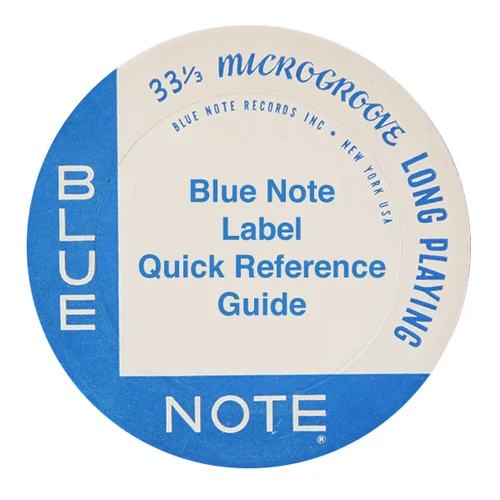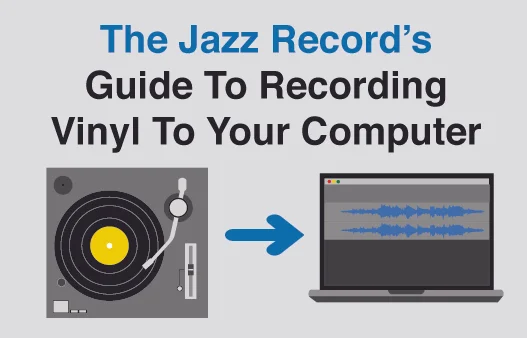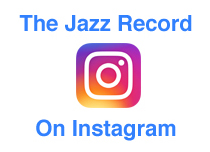Let The Funk Flow: Joe Farrell - "Canned Funk"
/Joe Farrell • Canned Funk • 1975 • CTI Records
Recorded November & December 1974 at Van Gelder Studios
The Selection:
The Players:
Joe Farrell - Tenor Sax, Baritone Sax, Soprano Sax, Flute
Joe Beck - Electric Guitar
Herb Bushler - Bass
Jim Madison - Drums
Ray Mantilla - Conga, Percussion
The Tracks:
A1. Canned Funk
A2. Animal
B1. Suite Martinique
B2. Spoken Silence
The Record:
Canned Funk would be Joe Farrell's sixth album for CTI, and his last truly jazz-funk recording for the label. He would make one more album for Creed Taylor, the collaboration Benson & Farrell (you know, the one with the two musicians framed inside a cigarette pack, because that was okay to do in those days), before making a few more records in the early 1980s prior to tragically passing away in 1984 at the young age of 48. He certainly had more to offer the jazz world before he left us.
I had seen Farrell's name in passing throughout the years without taking much notice until I picked up Jaki Byard's classic 1965 album Live! Vol 1 that features Farrell at his hard bop best, recorded live at Lennie's-on-the-Turnpike (Lennie's was a club about an hour outside Boston, you can read a nice remembrance of the club's founder Lennie Sogoloff here) That album, along with Vol 2, by Byard not only turned me on to Farrell's extraordinary talents, but they remain two of my favorite mid-'60s jazz albums to this day.
They also caused me to keep an eye out for any albums by Farrell when I was out and about at the record shops, which led to the purchase of his ultra-classic 1972 jazz-funk outing Moon Germs (his third album released on CTI). Now we're getting somewhere, was my first thought when I got home and threw the album on the Thorens, an amazing record by a newly discovered jazz cat that was on one of my favorite jazz labels as well (I've never had any aversion to CTI recordings, as I love me some jazz-funk and electricified jazz). That is what digging through the crates is all about!
As my fellow vintage vinyl collectors are certainly aware, this only led to more purchases of Farrell's CTI records whenever I came across them, which was about once a year and rarely at prices that broke the bank. I eventually found his other classics for the label - Penny Arcade, Upon This Rock and Outback - gracing the shelves of my collection. When I came across Canned Funk, an album I I knew from his discography, but had otherwise not listened to yet it was a no-brainer to pick up, especially for $12, and while it is not quite up to the awesome heights of his earlier CTI recordings, it is still a quality '70s funky outing that still has time for some excellent improvisation despite it's electric jazz and fusiony flourishes.
Farrell plays just about every variety of the saxophone on the album, taking turns on tenor, baritone and soprano, as well picking up the flute for "Spoken Silence", the closing track that finds him overdubbing multiple flute tracks along with his tenor lines. "Spoken Silence" is the closest track on the record to the R&B-tinged electric jazz that would find commercial popularity in the mid-'70s (think Donald Byrd's run of classic albums for Blue Note around that time), and would hint at the sound that would appear on his next album with George Benson. Throughout Canned Funk Farrell's tone is bold and confident, he's not holding back for anyone, especially on the choruses that set up the four long tracks. His baritone in particular is in full funk mode, right up there in your face telling you're body it's time to feel this music. In other spots, particularly when he picks up the tenor, his solos are ambitious and often complex, and keep this otherwise funky exercise rooted in the best of modern jazz's improvisational traditions.
The only other name on Canned Funk that may be overtly familiar to readers will be the guitarist Joe Beck, who made a name for himself in the fusion world throughout the 1970s. While he does show off the occaisional rock-inspired licks at times, he is clearly rooted in the jazz tradition, albeit on a turned up (and at times slightly distorted) electric guitar. For the most part, though, when it's his turn to solo he is tasteful and not overly showy, adding to the texture of the song rather than just trying to blow everyone away with complex riffs or massive blurred-finger solos. There is not much information to be had on Herb Bushler or Jim Madison, but both perform admirably (although not particularly memorably) in the keyboard-less rhythm section.
At the end of the day this lack of a keyboard player may be why Canned Funk doesn't quite reach the heights of Farrell's classic CTI records that proceeded it: those albums featured some fantastic playing by either Chick Corea or Herbie Hancock, two cats that could certainly lay down the funky melody line. If the 1970s electric jazz revolution taught us anything, it's that the presence of a competent keyboardist to lay down some texture and funky melody lines may be of utmost importance in keeping the whole affair grounded in jazz traditions. Nonetheless, even without Corea or Hancock manning the keys, Canned Funk is still a fine addition to Farrell's discography, although listeners looking for an introduction to his '70s output would be better off sticking to Moon Germs or Penny Arcade to start.
The Vinyl:
This being a 1975 CTI release, we end up with a pretty darn thin piece of vinyl; not surprising for this era of American LP releases. Apparently, Creed Taylor's felt his design budget was better left to the fancy (for their day) glossy gatefold covers and not to extending the life of the actual vinyl by, I don't know, adding a couple dozen grams to their overall weight.
In any case, my recent acquisition of Canned Funk happened to be a white-label "Radio Station Copy" promo release. These aren't particularly rare, I've seen lots of later CTI albums out there with the promo labels and cover sticker, these albums couldn't have sold particularly well, especially a record like Canned Funk, considering Joe Farrell wasn't exactly a well known name in an era of declining jazz sales.
The hand-etched markings in the vinyl trail-off are "RVG 87713 A - 1" and "RVG 87713 B - 1" respectively, and we have the Blue Note style stamped "VAN GELDER" in the trail-off on each side. Yep, this record was engineered by Van Gelder at his studio, so as long as you can track down a clean copy, you will get some nice sound coming out from your speakers.
For most early-to-mid 1970s electric jazz releases, I have found the vinyl to be far superior the digital versions that are currently out there. While there are acceptable CD and digital jazz reissues out there (I'm thinking mostly the Van Gelder Blue Note remasters and some other '50s and '60s albums that have been reissued with care to the original analog presentation), these '70s jazz funk albums tend to have a high-end sheen when converted to digital that can almost make them unlistenable at times. It's as if the engineer in charge of remastering them is trying to make them artificially sound as if they were recorded on high-end modern day equipment, when they obviously were not. The depth and range that vinyl offers is invaluable in these settings, presenting a nice even range of highs and lows. Luckily, with a few exceptions, many of these '70s electric jazz albums are not in demand by collectors, and therefore can be had for reasonable prices. Reasonable prices for jazz vinyl? Yes, even in this market it is still possible. Apparently you just need to know where to look...












